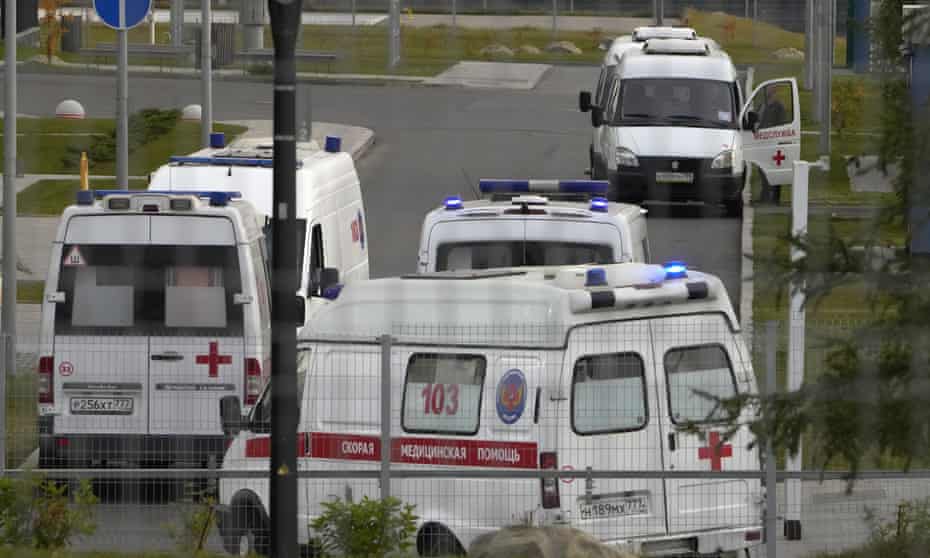Russia’s population decline because of Covid
Russia’s population undergoes largest ever peacetime decline, analysis shows
Published by the Guardian – additional graphs shown in original (see link at foot of this article)
Analysis finds natural population fell by 997,000 between October 2020 and September 2021 – with Covid cited as principal cause

Pjotr Sauer in MoscowWed 13 Oct 2021
Russia’s natural population has undergone its largest peacetime decline in recorded history over the last 12 months, according to an analysis of official government statistics made by a prominent independent demographer, as the country battles a deadly fourth wave of the Covid-19 pandemi
The natural population, a number calculated from registered deaths and births, excluding the impact of migration, declined by 997,000 between October 2020 and September 2021, the demographer Alexei Raksha has calculated.
Russia has been one of the countries hit hardest by the pandemic, registering at least 660,000 excess deaths since the start of 2020, according to government data, and the dramatic drop appears to show the devastating toll the pandemic has had on the country’s social fabric.
Previous government reports showed Russia’s population decline in 2020 was 11 times greater than that of the pre-pandemic 2019.
“It’s pretty simple, the deaths caused by Covid-19 are the biggest reason for the decline witnessed. Most other factors have stayed the same,” said Raksha, a demographic forecaster who left Russia’s state agency Rosstat last year after criticising the information centre’s coronavirus figures.
He pointed out that birth rates had not decreased over the last year, which indicated the decline was due to Russia’s increased death rate.
Despite widely available vaccines, Russia on Wednesday recorded a new record number of coronavirus deaths, as Russians continue to be sceptical of the Russian-made vaccines, with only a third of the population fully vaccinated.
“I don’t see how the situation can improve given the current trajectory of vaccine hesitancy and a lack of restrictions,” Raksha added.
Raksha said the current demographic decline could be compared to the decline seen between July 1999 and June 2000, when Russia’s population fell by 983,000, following a decade of economic instability, which caused birth rates and life expectancy to crash.
Russia’s population drop was already at the forefront of the Kremlin’s agenda before the pandemic and experts say Covid-19 only further exacerbates the issue.
Russia’s total population of about 145 million is lower than it was when Vladimir Putin first came to power in 2000.
The Russian president admitted in his 2019 annual press conference that the prospect of a depopulating Russia “haunted” him. Reversing the demographic crisis by the end of his term in 2024 was one of the key pledges announced during his 2018 re-election campaign.
The Kremlin has over the years introduced a number of policies and welfare payments to boost the decreasing birth rate, including schemes that give generous payouts to families with more than two children.
Despite its effort, however, a 2019 government report said Russia’s population could drop by more than 12 million by 2035.
Kremlin critics say the government has also used the demographic crisis to justify its clampdown on the LGBT community, introducing banning “gay propaganda” and outlawing adoption for same-sex couples in an effort to promote so-called traditional family values.

